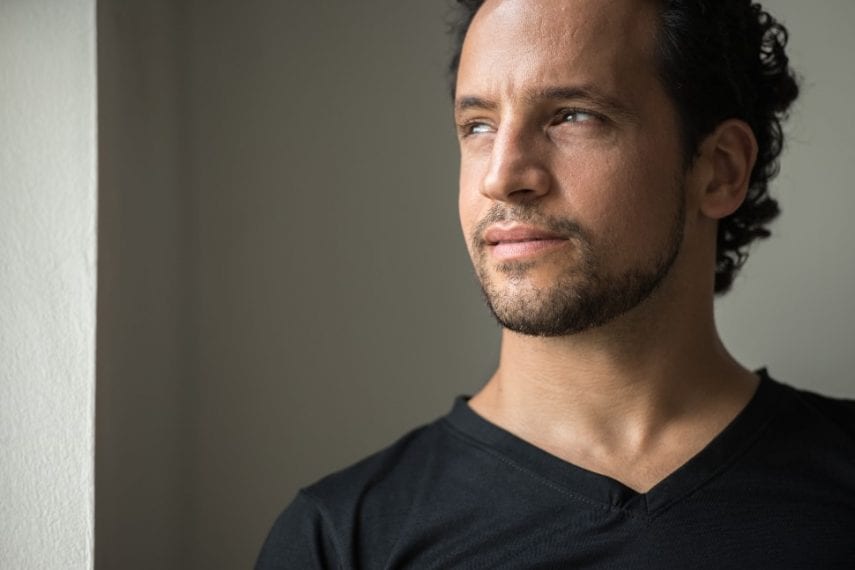Can You Quit Percocet Cold Turkey? How to Get (and Stay) Clean Safely

The nature of Percocet addiction makes it difficult to quit. The severity of Percocet withdrawal symptoms and the risks of relapse and overdose are among the possible consequences of quitting cold turkey.
Daniel started taking the prescription painkiller Percocet several years ago to manage his recurring back pain, but had grown dependent on its effects. Over time, his dependence had evolved into an addiction, as he found himself going to greater and greater lengths to maintain a constant supply of the drug. Determined to finally break his addiction, he decided to quit cold turkey: He planned to abruptly stop all Percocet use without either gradually reducing the dosage or using medications to mitigate the effects of withdrawal.
When he told his wife Louise of his intentions, she was relieved at his decision to address his addiction, but had strong concerns about his approach. She sought the advice of an addiction specialist, who confirmed her fears. Along with causing various uncomfortable or painful withdrawal symptoms, quitting an opioid such as Percocet cold turkey carries a strong risk of a relapse.
Louise convinced Daniel to discuss his plan with a doctor, who strongly recommended a dedicated course of addiction treatment, starting with a stay at a residential treatment facility. At the doctor’s suggestion, Daniel underwent a medically-supervised detox, during which he received comprehensive support to manage the effects of withdrawal. Following detox and extensive therapy, Daniel broke free from the grip of his addiction. Others aren’t as fortunate: Statistics from the CDC indicate that, on average, 46 people die each day as a result of prescription opioid overdoses.
The Nature of Percocet Addiction
Percocet is the brand name for a prescription drug consisting of a combination of the opioid oxycodone and acetaminophen. A powerful and effective painkiller, Percocet can also create a strong sense of euphoria and relaxation. The oxycodone in Percocet binds with the opioid receptors in a user’s brain, which reduces the sensation of pain and releases neurotransmitters like dopamine and serotonin to enhance the user’s mood.
All of this may be beneficial when Percocet is used in the manner in which it was prescribed. However, Percocet is frequently misused; The Drug Enforcement Agency classifies it as a Schedule II drug, with a high potential for abuse. Tolerance forms quickly, which means greater and greater amounts must be taken to produce the same original effects. Anyone who uses Percocet without a prescription or in amounts that exceed prescribed quantities is at risk for developing an addiction. Continued use of Percocet despite clear negative consequences—for instance, if usage affects work performance or causes trouble in personal relationships, or if a user resorts to risky or illegal actions to acquire the drug—is a sign of addiction. Percocet addiction and misuse carry the life-threatening risk of an overdose; other dangerous possible effects of long-term Percocet use include liver damage, kidney failure, cardiac problems, and osteoporosis.
Percocet Withdrawal Symptoms and Stages
Because long-term Percocet use causes physical and psychological dependence, abruptly giving it up will cause a variety of withdrawal symptoms. The severity of withdrawal depends on many factors, including the severity of addiction and the user’s overall health. Withdrawal generally begins anywhere from six to thirty hours after the last dose is metabolized. At the start of withdrawal, severe flu-like symptoms settle in, which may include any or all of the following:
- diarrhea
- vomiting
- nausea
- cramps
- aches
- fatigue
- tremors
- hot and cold spells
- insomnia
These symptoms will increase in intensity as withdrawal continues. Withdrawal may also cause mood disturbances, such as anxiety, irritability, depression, hyperactivity, mood swings, and agitation. While the effects of withdrawal will likely reach a peak in about a week, some symptoms may linger for a month or longer.
The Possible Consequences of Quitting Percocet Cold Turkey
If you attempt to abruptly break a Percocet addiction on your own without assistance from medical professionals, you may find yourself unable to cope with your withdrawal symptoms. Severe dehydration can occur from excessive vomiting and diarrhea; you may also aspirate from vomit. Because many users would rather resume Percocet use than experience withdrawal symptoms, quitting cold turkey brings a strong risk of relapse. Relapse is especially likely if the underlying psychological problems causing the addiction aren’t treated.
The cold-turkey approach carries another risk, one with the potential to be fatal: Stopping use of an opioid decreases your tolerance to its effects. If you succumb to the temptation of using the drug again, your body will no longer be able to handle it in the quantities you used to take, and your chance of overdosing increases.
Begin Your Recovery Journey Today
866-922-1350A Successful Approach to Percocet Addiction Treatment and Recovery
While trying to end a Percocet addiction on your own by abruptly stopping all use of the drug may ultimately prove ineffective, trusted and reliable methods of treatment exist. In the case of a Percocet addiction, a luxury rehab for Percocet addiction is likely to be the best alternative.
Your stay at a residential facility will likely begin with a supervised detox to end your physical addiction to the drug. During a medical detox, you’ll stay in a safe and comfortable environment, where you’ll be treated and monitored around the clock by addiction specialists, who’ll guide you through the uncomfortable and possibly dangerous effects of withdrawal. Appropriate medications will be administered to mitigate your withdrawal symptoms while your body breaks the physical grip of your addiction. This detox is the key to your treatment and long-term recovery.
Following detox, your inpatient treatment will include therapy to help you learn how to manage the underlying psychological causes of your condition. Individual, group, and family therapies are often included, along with experiential therapies to encourage healing and self-care. You will likely also undergo a careful regimen of medications to manage the effects of your addiction.
While cold turkey isn’t the best way to quit Percocet, effective forms of treatment are out there. A stay at a residential Percocet treatment facility will help you through the difficult yet vital process of recovery, enabling you to lead a healthier and addiction-free life.





